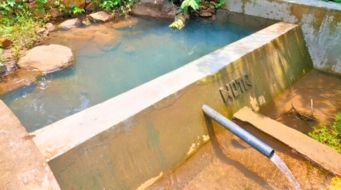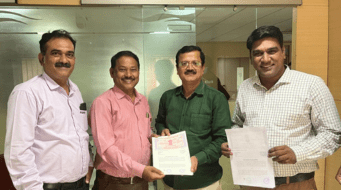-Renie Thomas, Ankita Yadav and Nilkanth Rane
Our perceptions and plans to address issues revolving around our water resources need to adapt if we are to respond effectively to the challenge of climate change. Most of our surface water bodies and aquifers are stressed not just in terms of availability of water but also at the quality front. The reasons can be attributed to changes in the timing, form and intensity of precipitation; changes in agricultural practices, urbanisation, industrial pollution and the use of surface and groundwater . It has the potential to have a long lasting impact on various ecosystems and their services that we are completely dependent on. The impacts are likely to affect the ongoing and future programs designed to protect water quality, public health, safety and livelihood of people. With this in mind, WOTR’s Groundwater and Ecology team continued to explore villages in their second leg of Mula-Pravara sub-basinal seasonal study to assess the reasons for the declining water quality.
While we moved about to collect water samples we tried to capture the voices of the farmers situated in areas with poor water quality.During our discussions Community members raised some thought provoking questions: whether this ongoing declining water quality can be repaired at the local level? Is the current ongoing deterioration of groundwater an irrevocable process in lieu of business as usual practices? In the video below Khandurao Bhaurao Dondale, a farmer from the village of Shivapur in Sangamner, speaks about his observations on deteriorating groundwater quality in his village.
Reviving of our surface water and groundwater aquifers needs a consorted effort of all concerned parties, government, civil society, knowledge providers & innovators. Innovative technological practices and implementation of strategies are also needed at different levels but, unless there is a change in the attitude and consensus for partnership for addressing the issues, any technological intervention has limited scope. Hence, to respond to the impacts of climate change and anthropogenic activities, integration of local adaptation measures supported by regular inputs from applied research is needed.





